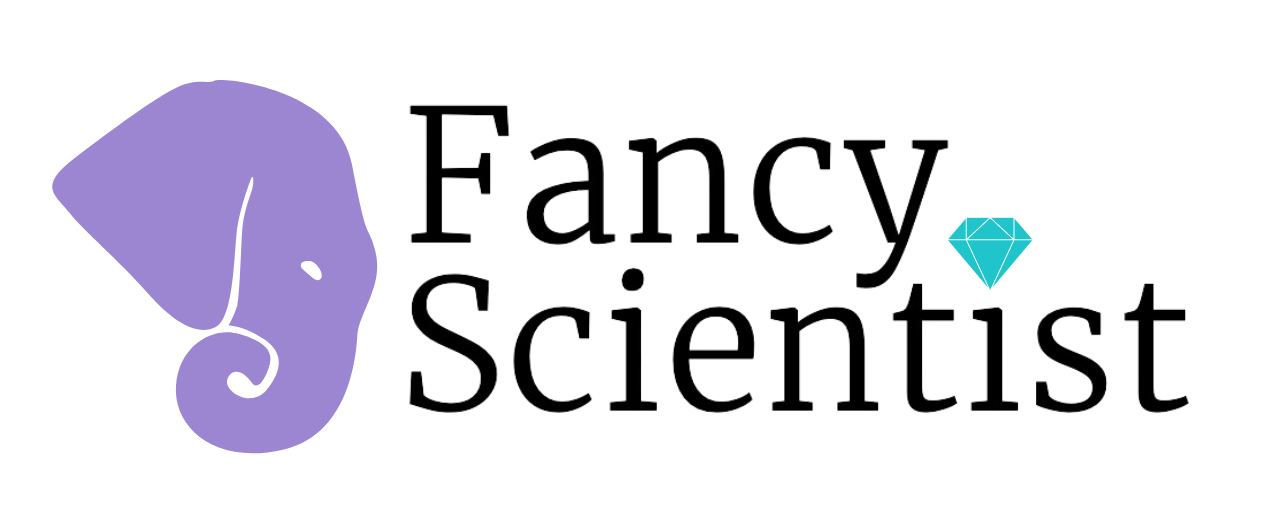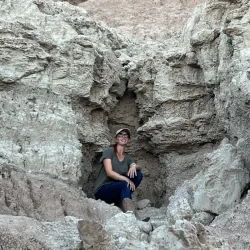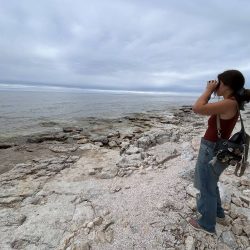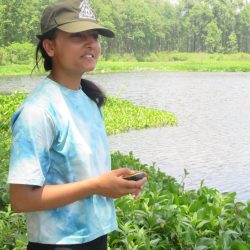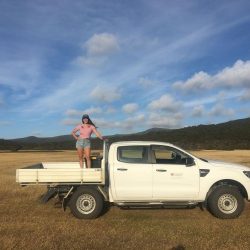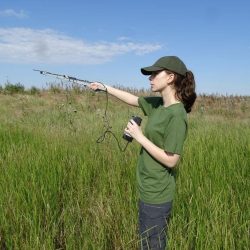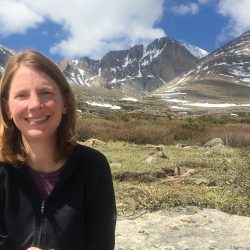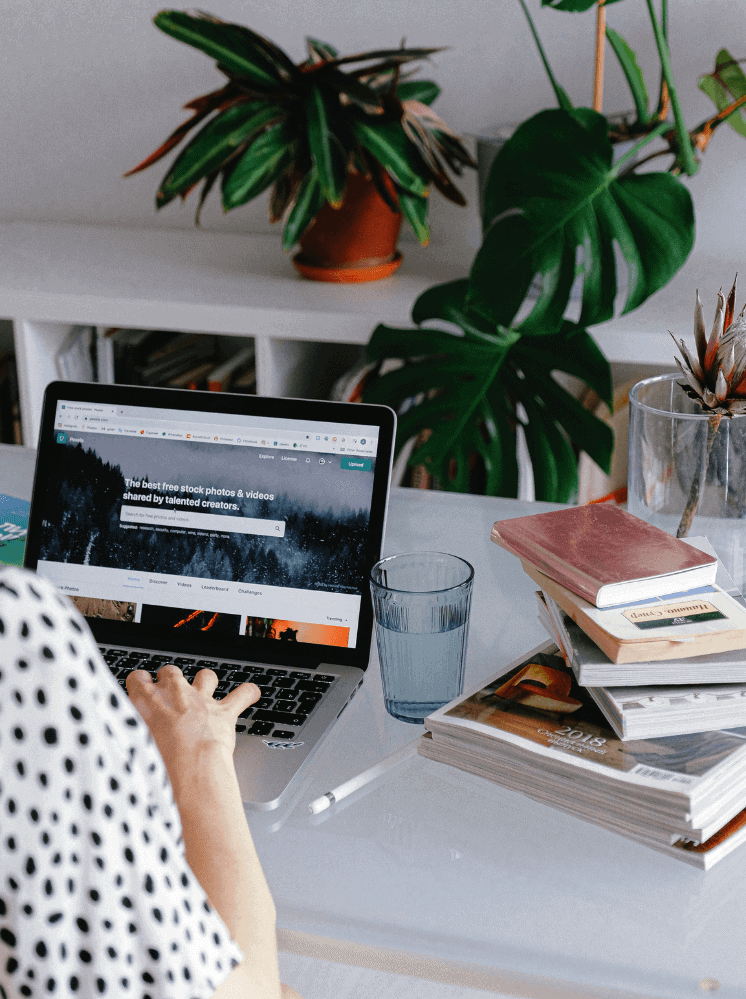A big part of my mission as a wildlife biologist is to empower and prepare aspiring and entry-level wildlife professionals so that they can secure good jobs in this competitive career and carry out their life’s purpose. As a result, I offer a variety of programs for those who want to work with me and take charge of their career. Here, you’ll learn about the successes of my students so that you can be inspired and see what is truly possible for you when you have clarity, strategy, and a competitive job application.
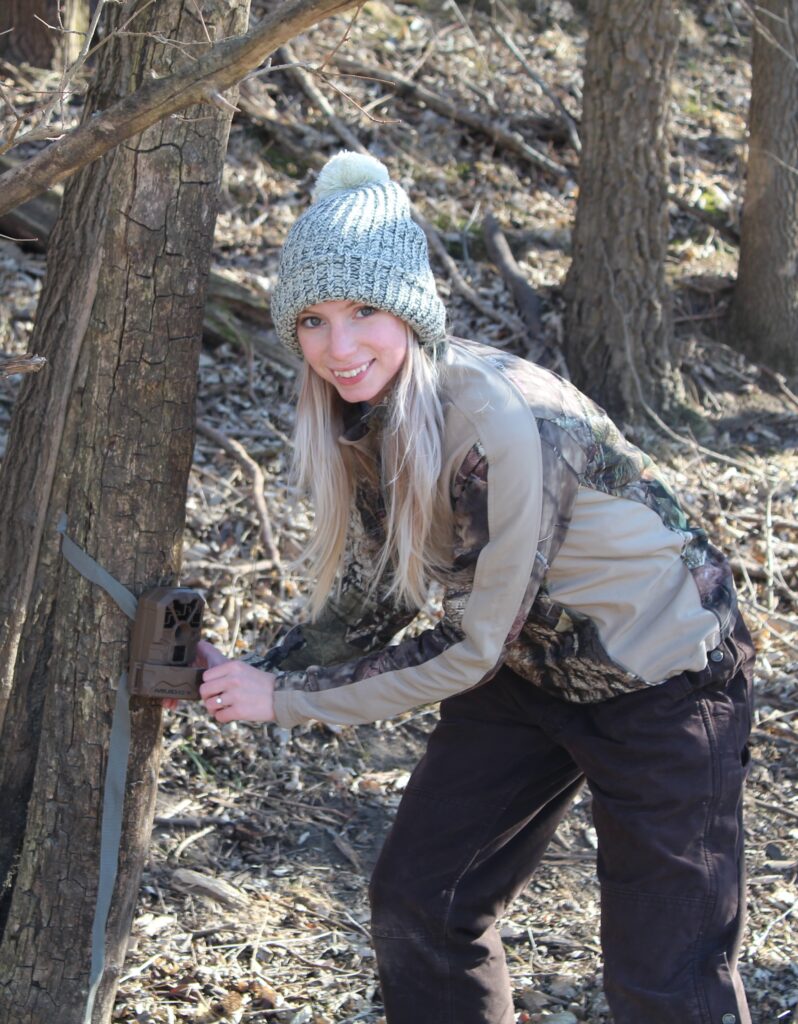
Nichole joined the Successful Wildlife Professional to do just that – gain the confidence she needed to believe she could land such a position as well as acquire the technical skills that would make her a success, namely networking and writing competitive job applications. And it’s paid off! Nichole now works as a Conservation Coordinator for the Upper Peninsula Resource Conservation and Development Council, where she has been active in public outreach and awareness for threatened and endangered species, leading camera trap surveys, restoring pollinator habitat, and mitigating invasive plants, to name a few! Her ultimate goal is to work on big cats, ideally at Panthera, and she won’t stop until she gets there.
About Nichole:
Like everyone else here I am working in the field of wildlife/natural resources, but I am a Christian, wife, and mother – I have realized, above all else, career included.
Where are you currently in your wildlife career?
Content. Working a full time remote job with occasional travel. I have a good hybrid job working for a non-profit in the Upper Peninsula of Michigan. It’s grant funded so whatever I want to do, I find a grant, and can do it.
(Nichole currently works as the Conservation Coordinator for the Upper Peninsula Resource Conservation and Development Council)
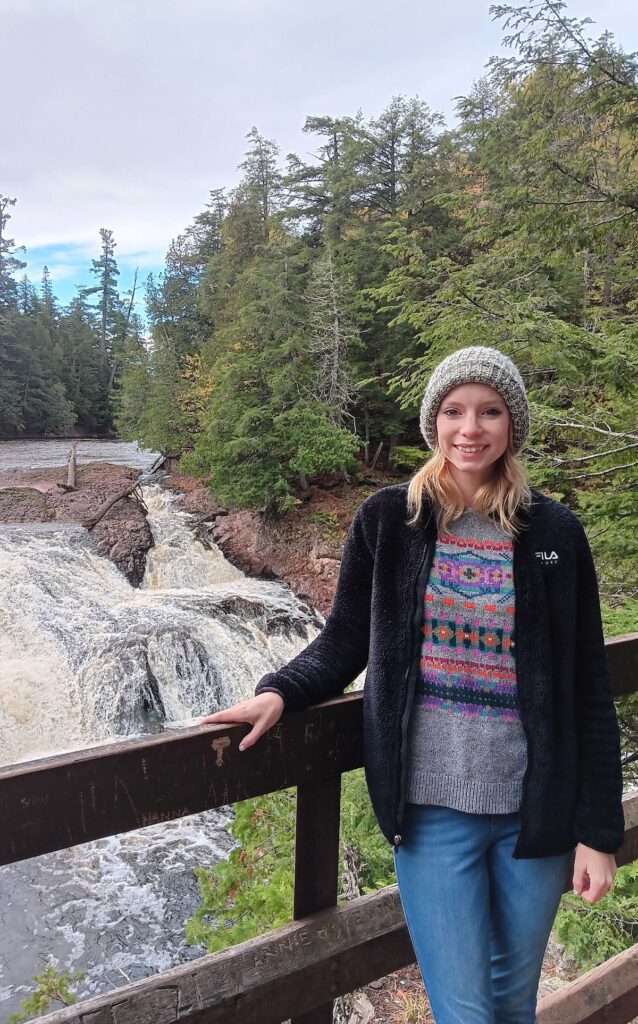
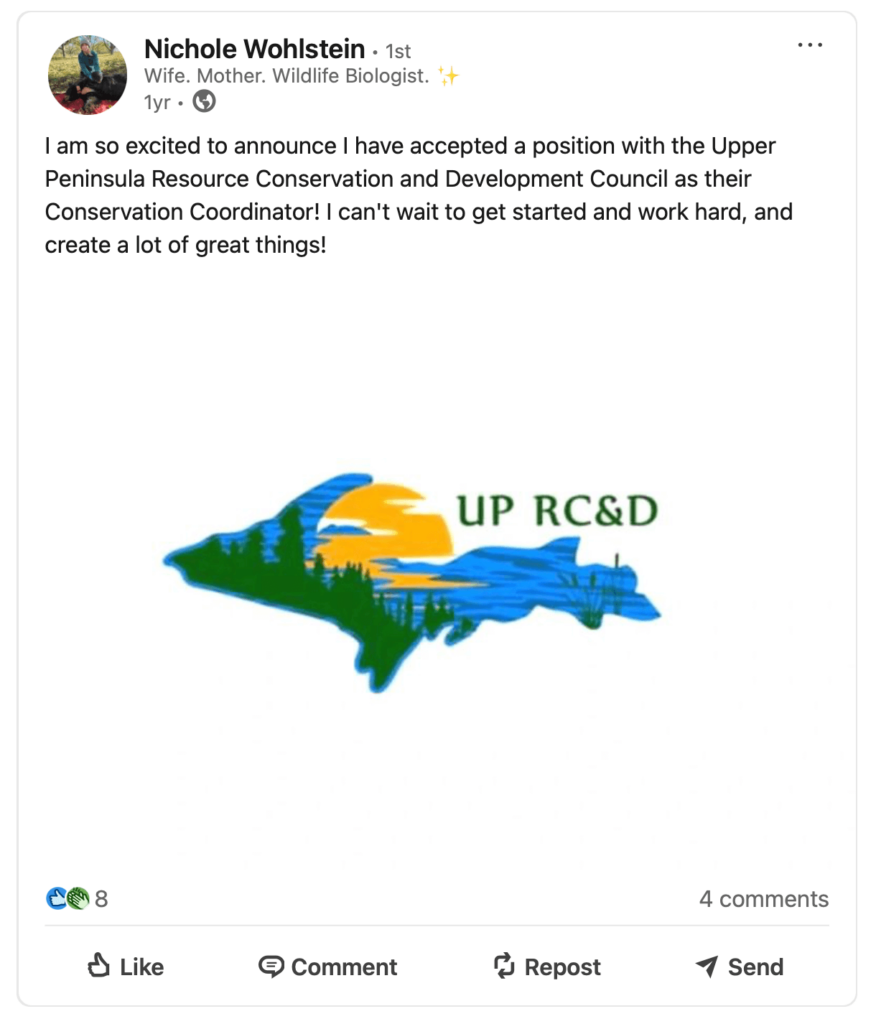
What's your dream job?
It has always been to work with big cats, now it still is, but I want to prioritize my family more.
What is a hardship you have overcome in your career?
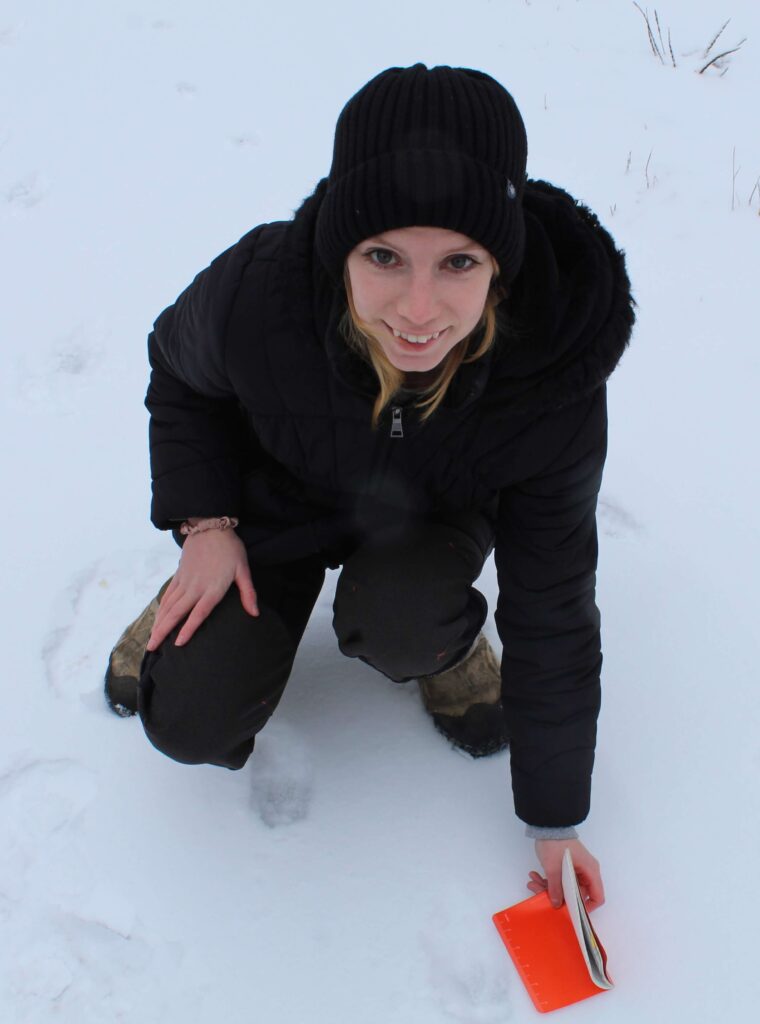
Moving all the time and being married to a man who is also in natural resources. Few jobs and we are kind of competing in a way. I really have been super successful by not having any gaps this far and always getting jobs or experience in what I am interested in.
What kind of impact do you want to have in your career?
Rewild the US. And partly I want to make past me proud.
"I really have been super successful by not having any gaps this far and always getting jobs or experience in what I am interested in."
How did you know you wanted to go into this field?
Family lore of wildcats, old stories of sightings and my own encounters. Plus living on almost 100 acres shared with my family, I had a lot of room to explore and science experiments and discovery were encouraged.
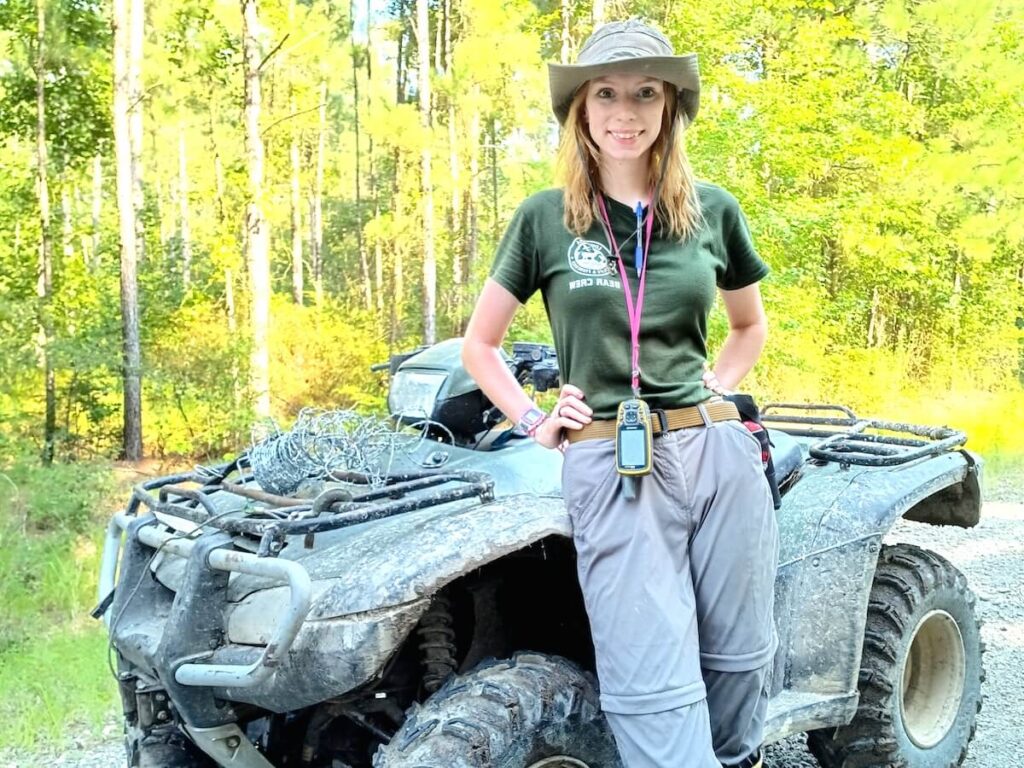
What is a hardship you have overcome in your career?
Moving all the time and being married to a man who is also in natural resources. Few jobs and we are kind of competing in a way. I really have been super successful by not having any gaps this far and always getting jobs or experience in what I am interested in.
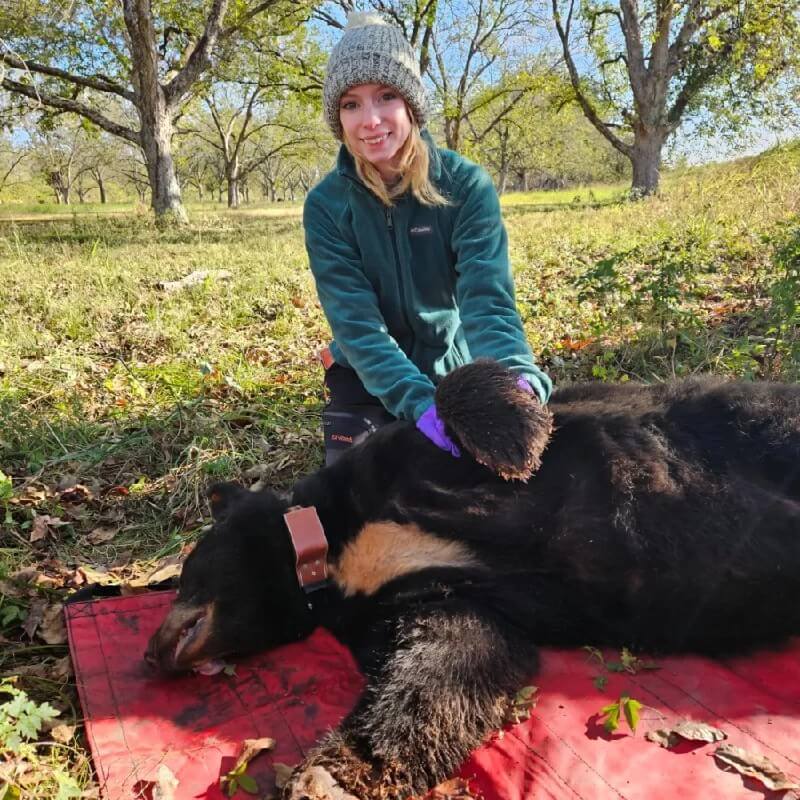
What's a moment of success you've had in this career?
Collaring black bears in Louisiana for the Louisiana Department of Wildlife and Fisheries.
What is the biggest takeaway or most important lesson you have learned so far from the Successful Wildlife Professional?
That I can turn any experience or class into skills that will benefit me in a job. Like an ecology lab for example. We monitored 1m x 1m plots of vegetation. That was a lab, but I learned it. Only did it once, but I know how to do it and could repeat it any time. Same with testing avian influenza, I was only shown once in a lab, but I remembered how to do it, and know how. These are things I can add to a resume or at least a skills section. It’s the remembering part that’s important; don’t add it unless you are confident to answer questions about it in an interview or perform it in front of someone.
What was your life/career like before the Successful Wildlife Professional? What was it like after?
Before it was tech jobs and volunteering, all with great success. Now it is…professional! My jobs are full-time and public-facing. I attend conferences, plan huge projects, and oversee techs. And I have a lot more confidence in my skills. A lot that have even been gained from classes which I didn’t know I could use on resumes.
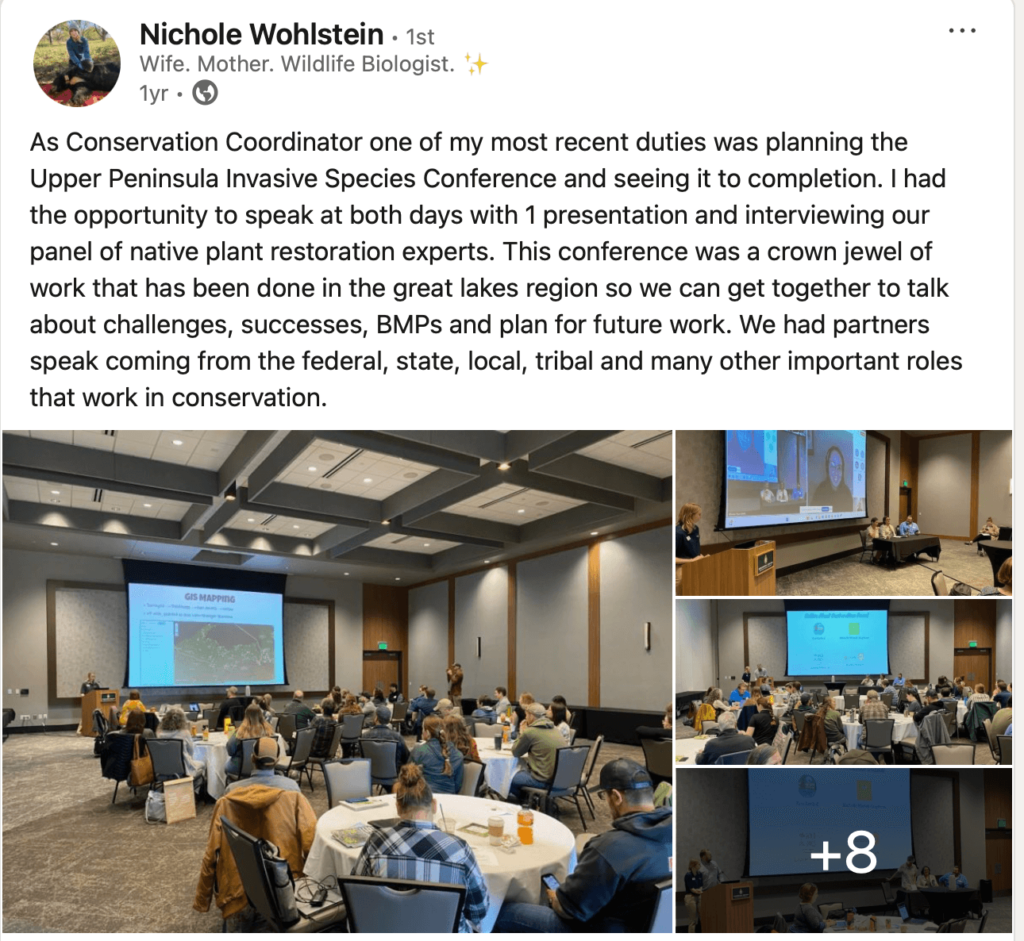
"I have a good hybrid job working for a non-profit in the Upper Peninsula of Michigan. It's grant funded so whatever I want to do, I find a grant, and can do it. "
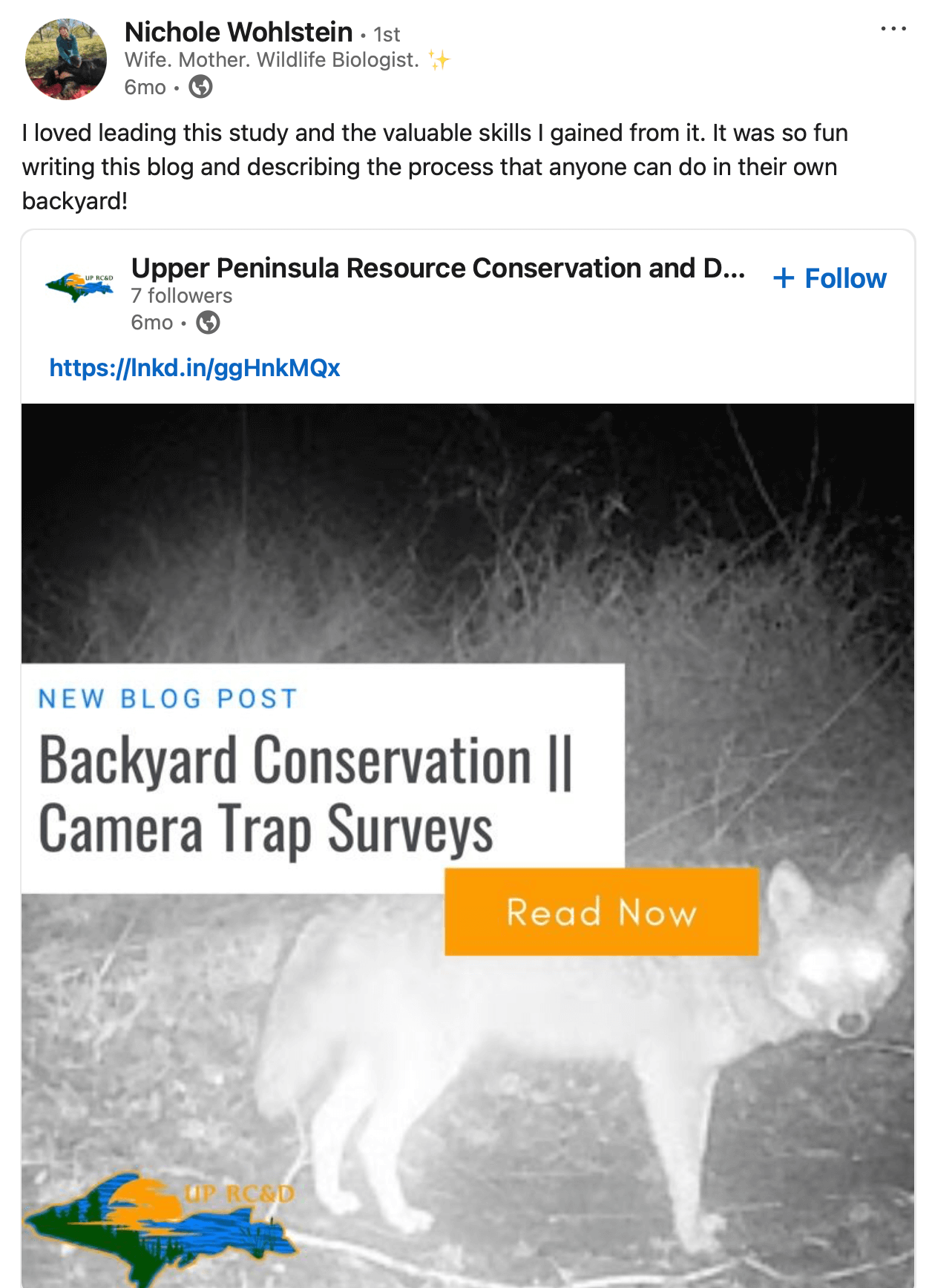
What would you say to someone who is thinking about joining the Successful Wildlife Professional, but is on the fence?
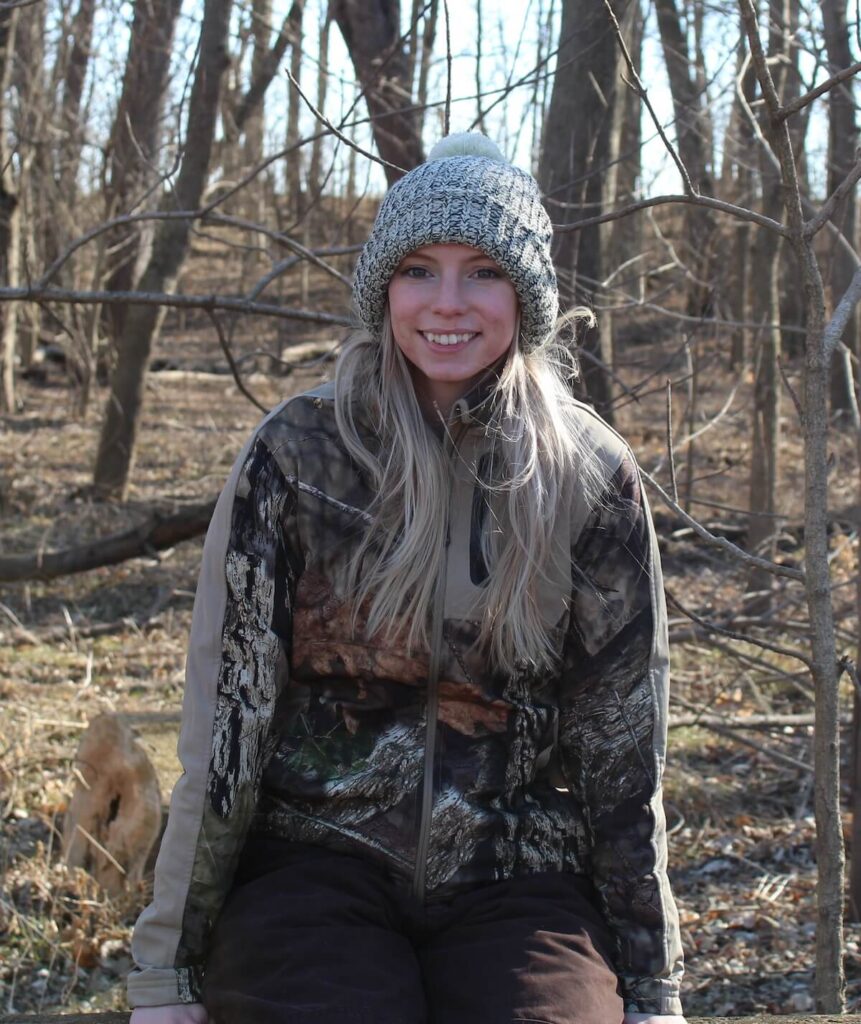
Oh, it’s definitely worth it. Even if you are doing a good job landing positions, this program has tips that are key in boosting your chances even more. Stephanie gave us good advice about using everything we have EVER done to our advantage. Especially for college students. Now that I think of this, as a stay at home mom for the time being, I am gaining HUGE skills and learning resiliency that I never knew I had that WILL make me more competitive when I go back to the phase in my life where I start searching jobs again. Like I can sure as heck pull some long nights or early mornings! Work through pain and emotion! Lots of things that I will be sure to bring up in interviews now.
Programs Nichole enrolled in:
Continue to follow Nichole’s success and adventures by following her on LinkedIn.
If you’re ready to get results like these and go after your dream career in wildlife, then I’d love to meet you! Check out my programs page to see how can work together.
And make sure you sign up for my next free training!
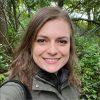
Stephanie Manka
Stephanie Manka, Ph.D. is a wildlife biologist with 20 years of experience in mammal ecology and conservation, education, and outreach. Read her story to find out how she went from the daughter of a jeweler to a Ph.D. in wildlife biology.
You May Also Like
Love this post? Share it with friends!
